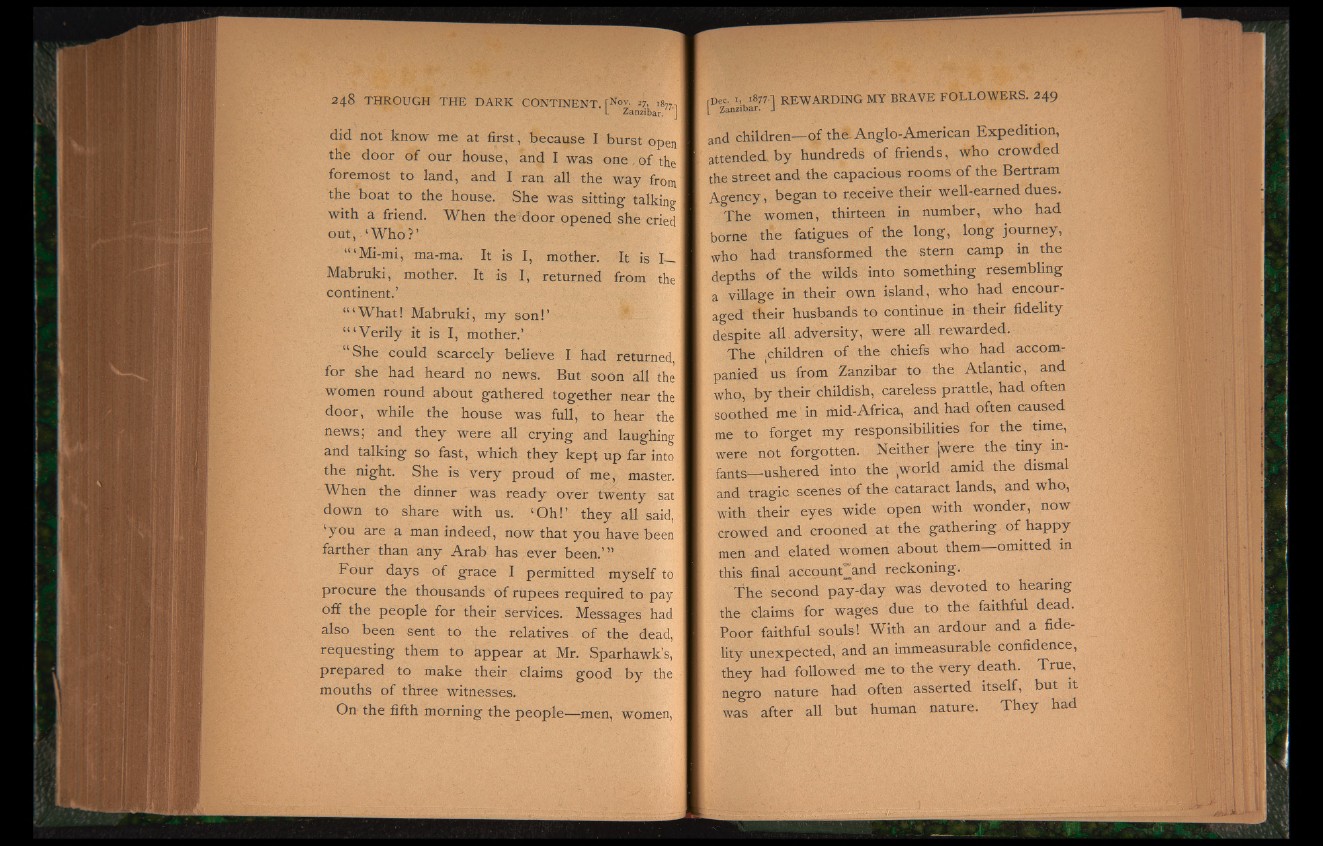
did not know me at first, because I burst open j
the door of our house, and I was one.of the
foremost to land, and I ran all the way from
the boat to the house. She was sitting talking
with a friend. When theidoor opened she cried
out, -‘Who?’
“ ‘Mi-mi, ma-ma. It is I, mother. It is I ]
Mabruki, mother. It is I, returned from the!
continent.’
“ ‘What! Mabruki, my son!’
“ ‘Verily it is I, mother.’
“ She could scarcely believe I had returned, J
for she had heard no news. But soon all the j
women round about gathered together near the 1
door, while the house was full, to hear the
news; and they were all crying and laughing
and talking so fast, which they kept up far into j
the night. She is very proud of me, master.
When the dinner was ready over twenty sat
down to share with us. ‘Oh!’ they all said,
‘you are a man indeed, now that you have been
farther than any Arab has ever been.’ ”
Four days of grace I permitted myself to
procure the thousands of rupees required to pay j
off the people for their services. Messages had
also been sent to the relatives of the dead,
requesting them to appear at Mr. Sparhawk’s, ;
prepared to make their claims good by the -
mouths of three witnesses.
On the fifth morning the people—men, women,
and children— of the Anglo-American Expedition,
attended, by hundreds of friends, who crowded
the street and the capacious rooms of the Bertram
Agency, began to receive their well-earned dues.
The women, thirteen in number, who had
borne the fatigues of the long, long journey,
who had transformed the stern camp in the
depths of the wilds into something resembling
a village in their own island, who had encouraged
their husbands to continue in their fidelity
despite all. adversity, were all rewarded.
The children of the chiefs who had accompanied
us from Zanzibar to the Atlantic, and
who, by their childish, careless prattle, had often
soothed me in mid-Africa, a n d had often caused
me to forget my responsibilities for the time,
were not forgotten. Neither ¡were the tiny infants—
ushered into the world amid the dismal
and tragic scenes of the cataract lands, and who,
with their eyes wide open with wonder, now
crowed and crooned at the gathering of happy
men and elated women about them— omitted in
this final accounVand reckoning.
The second pay-day was devoted to hearing
the claims for wages due to the faithful dead.
Poor faithful souls! With an ardour and a fidelity
unexpected, and an immeasurable confidence,
they had followed me to the very death. True,
negro nature had often asserted itself, but it
was after all but human nature. T h e y had